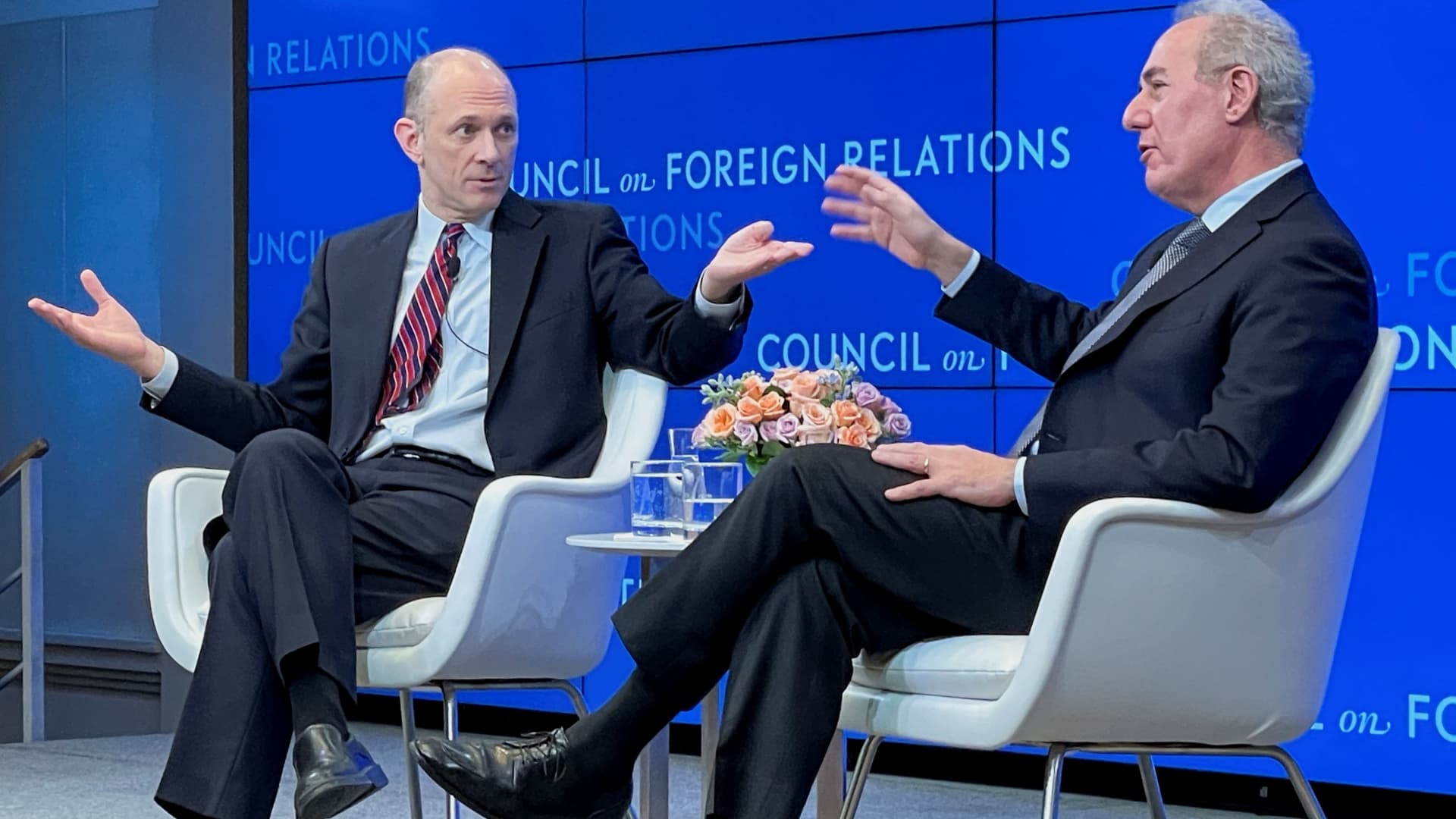Products You May Like
CHICAGO — The path to 2% inflation is “more difficult” in 2024, said Federal Reserve Bank of Chicago President Austan Goolsbee.
“We’re going to get to 2%,” Goolsbee said Friday during a session at the Society for Advancing Business Editing and Writing‘s annual conference. “We said it. That’s our stated target.”
Inflation has come down significantly from its pandemic-era peak of 9.1%, but remains stubbornly above that stated target.
The consumer price index, a broad measure of costs for goods and services across the economy, rose 3.5% in March from a year ago.
More from Personal Finance:
Some students are still struggling to access college aid amid ongoing FAFSA ‘disaster’
IRS waives mandatory withdrawals from certain inherited IRAs — again
Women who are turning ‘peak 65’ may be financially vulnerable, research finds
“If you take a broad view, inflation got way above where we were comfortable with and it’s down a lot,” he said.
The first three readings for this year indicate covering the remaining distance to 2% “may not be as rapid,” he added.
That “stalling” merits further investigation on the direction of the economy before the Fed moves to cut rates, said Goolsbee, who is a nonvoting member this year of the rate-setting Federal Open Market Committee.
He described himself as a “proud data dog,” and pointed to what he says is “the first rule of the kennel.”
“If you are unclear, stop walking and start sniffing,” he said. “And with these numbers, we need to do more sniffing.”
“We want to have confidence that we are on this path to 2[%],” he said. “That’s the thing we have got to pay attention to.”
Housing inflation is a key area to watch, Goolsbee said.
“That’s the one that has not behaved as we thought it would,” he said.
Shelter costs, which make up about one-third of the weighting in the CPI, rose 5.7% in March from a year ago.
“The market rent inflation is well down, but it hasn’t flowed through into the official measure,” he said. “If it doesn’t — I still think it will — but if it doesn’t, I think we’re going to have a hard time. It’s definitely going to be more difficult to get to 2% overall if we do not see progress.”
